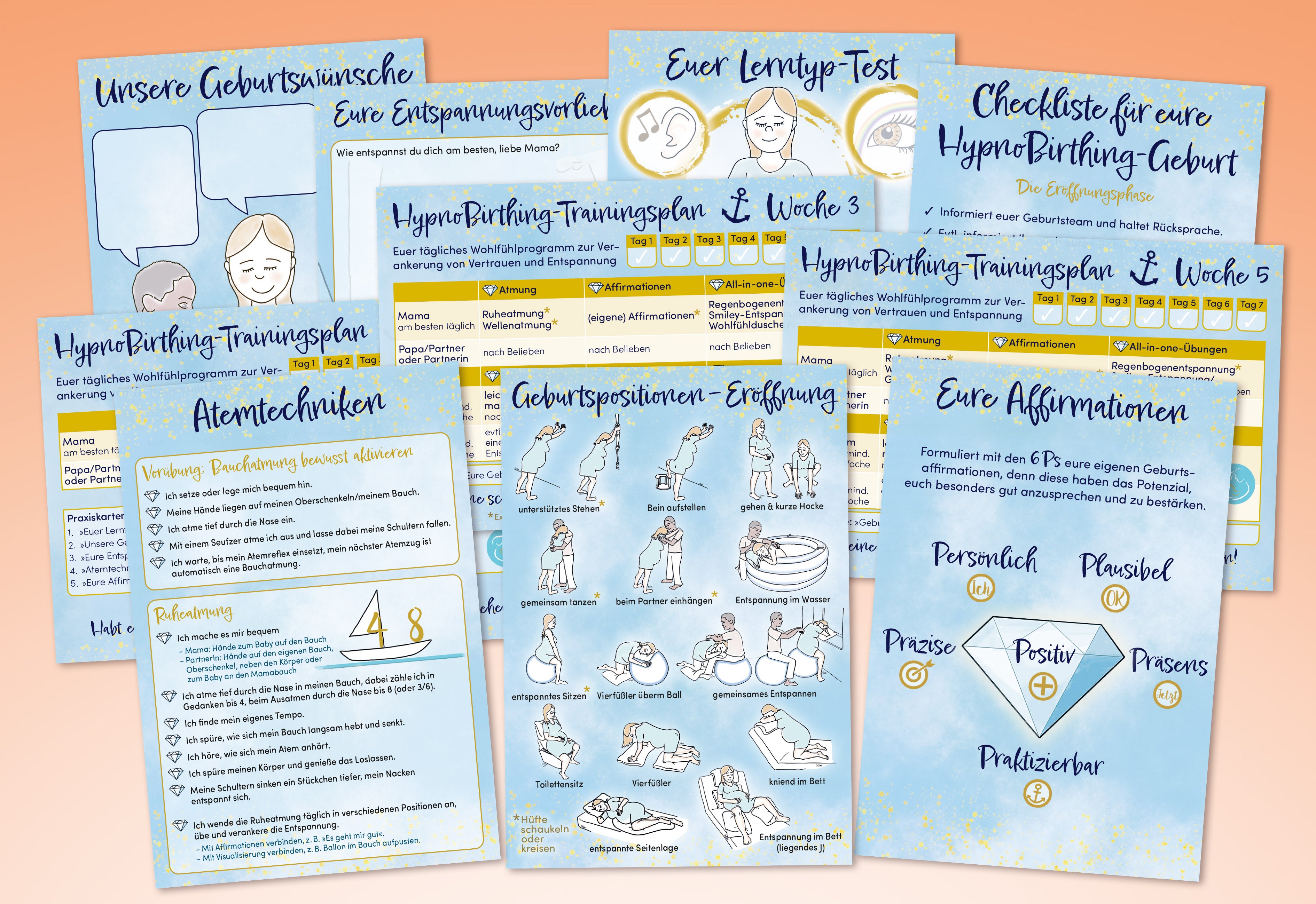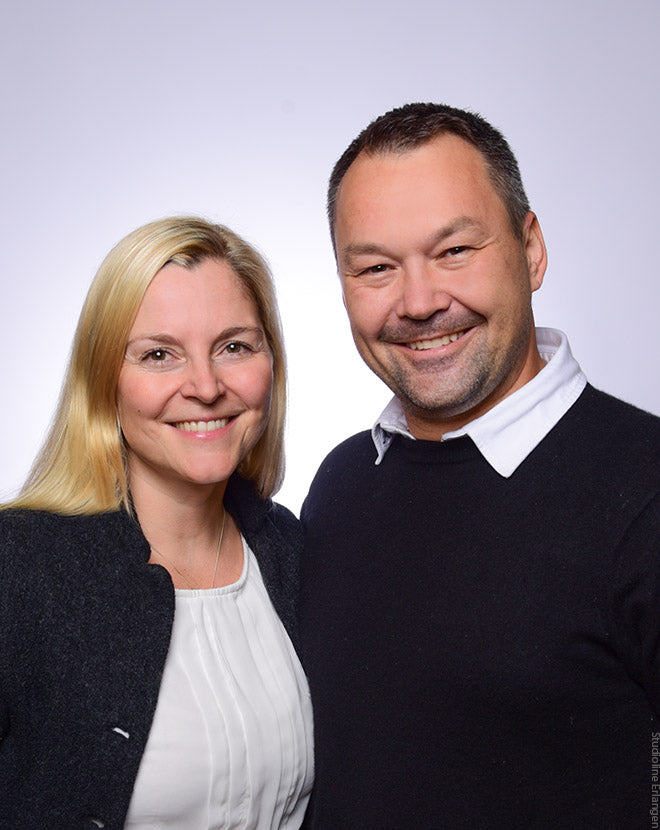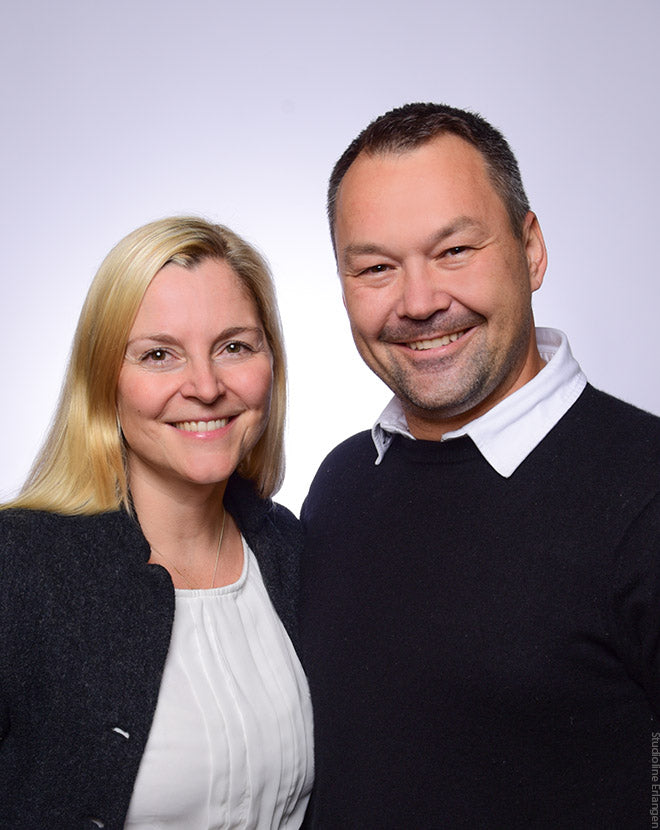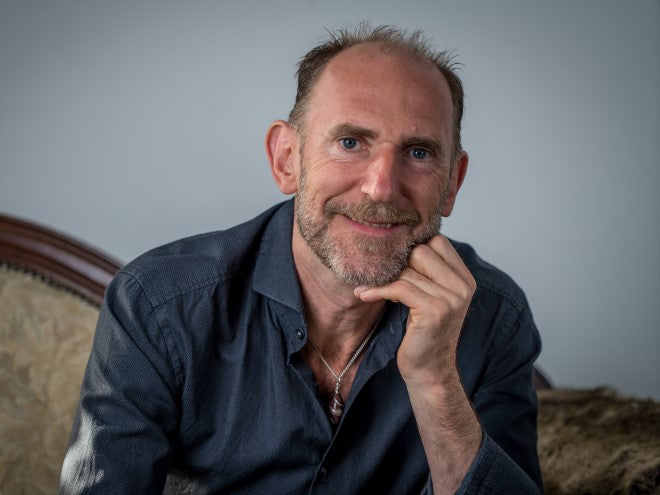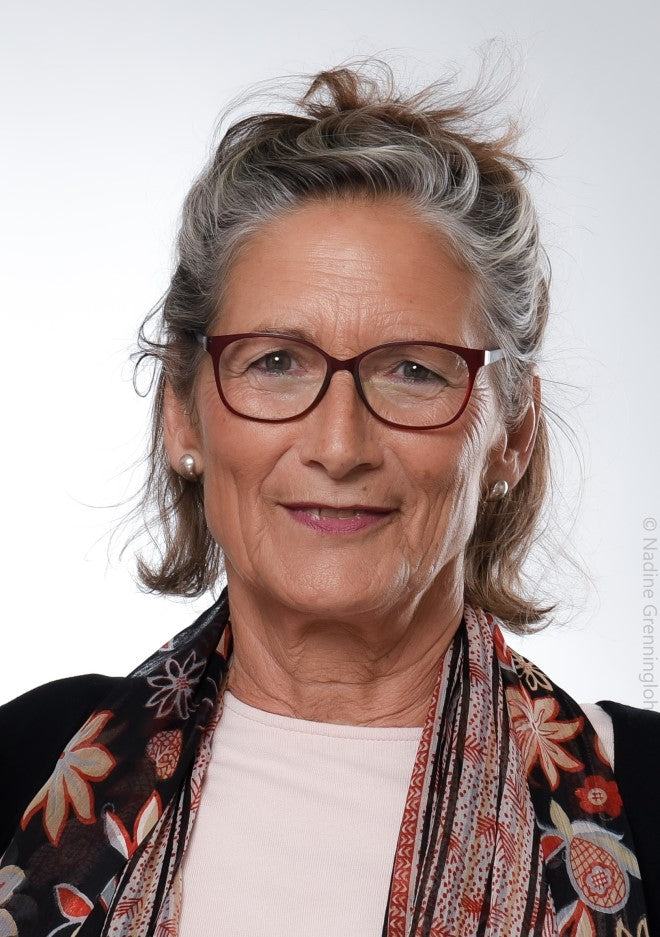
“This phase of reinvention as a family cannot be modernized or shortened!” Interview with Viresha J. Bloemeke on the subject of postpartum care
“This phase of reinvention as a family cannot be modernized or shortened!” Interview with Viresha J. Bloemeke on the subject of postpartum care
"The term 'postpartum period' may sound old-fashioned to many, but in my more than 30 years as a midwife, I have found that all young parents are confronted with the same questions, uncertainties and stumbling blocks on the journey of reinventing themselves as a family. The fundamental learning and change processes of the first six to twelve weeks after birth cannot be streamlined or made more efficient - but you can prepare for them before the baby arrives and accept them joyfully and humbly, aware of their preciousness." The experienced midwife Viresha J. Bloemeke - author of the standard work " Everything about the postpartum period ", which has now been published in an updated new edition - wants to make the start of family life easier for young parents and sees a more mindful postpartum culture as an opportunity for a better future for our children and grandchildren.
Your standard work “Everything about the postpartum period” is now being published in an updated and revised new edition by Mankau Verlag. What is new about this tried and tested guide and who is your book aimed at?
Viresha J. Bloemeke: The book is aimed primarily at parents-to-be and parents-to-be, and now also includes families with two mothers. What is new is the loving design and the updating of the web tips and literature recommendations. It is also often used in classes by midwifery students.
Your book is now used and recommended by many midwives as a practical guide and valuable companion. What experiences led you to write this book?
Viresha J. Bloemeke: After many years of driving from one new mother's house to the next in Hamburg and the surrounding area, I eventually put a notebook on the passenger seat and collected the topics I was repeatedly asked about and the stumbling blocks I had observed on the journey of reinventing myself as a family. So many things were repeated that I thought it would be a good idea to prepare more thoroughly for this phase of life!
“Confirmation period” is actually an old expression for the time that mothers had to spend in bed after giving birth. What significance do these first weeks have for parents and child, and what do we understand today by this important phase?
Viresha J. Bloemeke: Yes, that really does seem like a very old-fashioned word and does not seem to fit in with the pace and demands of our time. But the fundamental learning and change processes that take place in the first six to twelve weeks after a child arrives in the family cannot be modernized, streamlined or made more efficient. Giving this new discovery space, peace and time in the lives of everyone involved is still like "falling out of time and landing on another planet". After three to five days on the "maternity ward" you go home, but that is where it really begins!
During the so-called “postpartum period,” crucial processes take place for mothers, partners, families and newborns that prepare for everything that follows. What are these processes and how can these phases be successfully managed?
Viresha J. Bloemeke: In the book, these processes are described in six chapters, which of course do not run separately from one another: 1. Getting to know and forming a lifelong bond with a new person, 2. Accepting their temporary dependence on love, food and care around the clock, 3. Processing the birth experience, 4. Physical adjustment and healing processes in the mother, 5. Experiences with milk production and breastfeeding, and 6. Adjusting to a new family situation. Just getting to know these six areas in advance in their time sequences and appearances and also dealing with all of their possible hurdles and ways of helping them helps you to accept them and practice patience and amazement!
Despite the comprehensive and almost incomprehensible range of information available about pregnancy and birth, young parents are often overwhelmed by this life event. Why is that, and what needs to change in order to really enjoy this phase of life?
Viresha J. Bloemeke: In my opinion, many young people are not really prepared for the experience of parenthood and the values and qualities required for it. For these miraculous times of pregnancy, birth and life with children, simply accumulating knowledge and turning to a control system that measures and standardizes is limited and simply not enough. What needs to change? A big question. For me, it is time to develop awareness of the preciousness of all life and humility, instead of just asking about explainability and feasibility, and to find a connection again to "what holds the world together at its core".
“Everything about the postpartum period” not only gives concrete tips for baby care and health or for the well-being of parents, but is also a plea for a better birth and postpartum culture. What is your hope for a “change in values from the postpartum period”?
Viresha J. Bloemeke: Similar to my last answer, I wish for parents who, as a couple, can discover new values and qualities in themselves as they rediscover themselves and who are aware of the miracle of life in supporting their children as they grow and develop. Perhaps the postpartum period is the cradle of social change: a change that brings about real equality between men and women in their differences, a change in which people develop who do not follow the tracks of role models and rigid ideas, but who consciously and presently find mutual respect. So that the children are accompanied into a time worth living and can preserve what they have brought with them: a wonderful world full of love, beauty and wonder!
Book tip:
Viresha J. Bloemeke: Everything about the postpartum period . Midwifery knowledge for the first 100 days after birth. The standard work in the updated new edition! Mankau Verlag, 1st edition September 2022, paperback, color, 16 x 22 cm, 221 pp., 22.00 euros (D) / 22.70 euros (A), ISBN 978-3-86374-670-4
Link recommendations:
More information about the guide “Everything about the postpartum period”
To the reading sample in PDF format
More about author Viresha J. Bloemeke
Our social networks − for questions, criticism, suggestions


